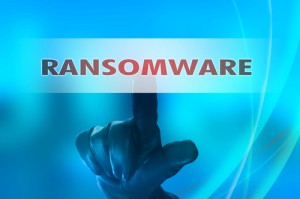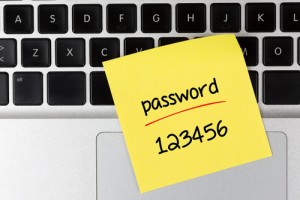Posted by Health Law Informer Author
on July 13, 2016
HHS,
OCR /
No Comments
 In response to the increasing prevalence of ransomware cyber-attacks by hackers on electronic health information systems in hospitals and medical practices, the Department of Health and Human Services (HHS) Office for Civil Rights (OCR) announced on Monday July 11, 2016 its publication of new HIPAA guidance on ransomware (“Ransomware Guidance”). According to OCR:
In response to the increasing prevalence of ransomware cyber-attacks by hackers on electronic health information systems in hospitals and medical practices, the Department of Health and Human Services (HHS) Office for Civil Rights (OCR) announced on Monday July 11, 2016 its publication of new HIPAA guidance on ransomware (“Ransomware Guidance”). According to OCR:
Ransomware is a type of malware (or malicious software) that encrypts data with a key known only to the hacker and makes the data inaccessible to authorized users. After the data is encrypted, the hacker demands that authorized users pay a ransom (usually in a cryptocurrency such as Bitcoin to maintain anonymity) in order to obtain a key to decrypt the data.
Notably, the HIPAA Security Rule already requires implementation of security measures to help covered entities and business associates prevent the introduction of malware (e.g., ransomware) into their systems, and to implement policies and procedures to assist in responding to ransomware attacks. The Ransomware Guidance addresses, among other areas, how to implement security measures in order to prevent, mitigate the chances of, or even recover from ransomware attacks. Not surprisingly, conducting a risk analysis (or risk assessment) is at the core of covered entities and business associates implementing security management processes as required by the HIPAA Security Rule. The Ransomware Guidance further notes that maintaining an overall contingency plan, as required by the Security Rule, that includes disaster recovery planning, emergency operations planning and frequent backups of data can also help covered entities and business associates respond to and recover from malware infections, including ransomware attacks.
In addition, the Ransomware Guidance states that ransomware attacks against a covered entity or business associate can be considered a breach under the HIPAA Rules. Specifically, the Ransomware Guidance provides, “[w]hen electronic protected health information (ePHI) is encrypted as the result of a ransomware attack, a breach has occurred because the ePHI encrypted by the ransomware was acquired (i.e. unauthorized individuals have taken possession or control of the information), and thus is a ‘disclosure’ not permitted under the HIPAA Privacy Rule.” Therefore, unless it can be shown that there is a low probability that the PHI involved in the ransomware attack has been compromised based on the factors in the Breach Notification Rule, a breach is presumed to have occurred, which would trigger the applicable breach notification provisions.
Even before OCR’s publication of the Ransomware Guidance, in late June the Secretary of HHS sent a letter (“Letter”) to the attention of chief executive officers at health care entities addressing the threat of ransomware. The Secretary attached interagency guidance to the Letter containing best practices and mitigation strategies integral to combatting ransomware incidents.
Ransomware is immediately disruptive to the day-to-day operation of businesses, as seen by its impact earlier this year on health care systems like MedStar in Washington, D.C. and Hollywood Presbyterian Medical Center in Los Angeles (“HPMC”), resulting for example, in HPMC paying 40 Bitcoins (approximately $17,000) to regain control of its computer system. Although the Ransomware Guidance does not address whether payment or ransom should be paid to regain access to computer systems, the interagency guidance attached to the Letter advises against paying hackers because, among other reasons, paying a ransom doesn’t necessarily guarantee that an entity will regain access to its system. The Ransomware Guidance does recommend that an entity victimized by a ransomware attack contact its local FBI or United States Secret Service field office.
For more information about the Ransomware Guidance contact Gregory M. Fliszar, Ryan Blaney, J. Nicole Martin or a member of Cozen O’Connor’s Health Law team.
Tags: attacks, best practice, bitcoin, Business Associate, covered entity, encrypt, guidance, hacker, HHS, HIPAA, HITECH, malicious, OCR, privacy, ransom, ransomware, security, software
Posted by Health Law Informer Author
on March 30, 2016
Healthcare,
Hospital /
No Comments
MedStar, a Washington, D.C.-area hospital chain, became the latest healthcare industry victim of a cyber-attack when hackers breached its systems with a crippling virus. MedStar operates 10 hospitals in the D.C./Baltimore region, employs 30,000 staff, has 6,000 affiliated physicians, and serviced more than 4.5 million patient visits in 2015.
After being paralyzed by the virus, MedStar’s entire IT system for its 10 hospitals was forced to shut down and revert to paper records. The chain’s approximately 35,000 employees do not have access to emails and cannot look up digital patient records in the attack’s wake. The FBI is assisting the chain by investigating the incident. It’s unclear at the moment whether or not the hackers are demanding ransom from MedStar in exchange for removing the virus.
Monday’s cyber-attack at MedStar comes weeks after Hollywood Presbyterian Medical Center in Los Angeles paid hackers 40 bitcoins, or about $17,000, to regain control of its computer system, which hackers had seized with ransomware using an infected email attachment.
Hackers increasingly target healthcare entities as security protections in healthcare often lag behind those in banking and financial sectors. Healthcare information contains a treasure trove of patients’ personal information, and a complete healthcare record is worth at least ten times more on the black market than credit card information. Also, hospitals are considered critical infrastructure that cannot reasonably be closed or incapacitated for any great length of time, and so may be more inclined to bowing to hackers’ demands for ransom.
This latest attack just goes to show the importance of cybersecurity at hospitals and other healthcare entities. In addition to the recent Hollywood Presbyterian Medical Center attack, data breaches and cyber-attacks have also recently occurred at Excellus Blue Cross Blue Shield, UCLA Health System, Premera Blue Cross, and Anthem Inc.
For more information, please contact Dana Petrillo, or another member of Cozen O’Connor’s Health Law team.
Tags: attack, bitcoin, breach, cyber, data, hacker, HIPAA, hospital, PHI, ransom, security, virus
Posted by Health Law Informer Author
on March 22, 2016
HHS,
OCR /
No Comments
The Department of Health and Human Services (HHS) Office of Civil Rights (OCR) finally announced on March 21 that it is ready to begin Phase Two of its HIPAA audit program, which will include business associates. These audits, mandated by HITECH, will primarily be comprised of desk audits, scheduled for completion by the end of December 2016, followed by onsite audits.
OCR explained it will immediately commence Phase Two by verifying, via email, cover entities’ and business associates’ contact information. The OCR is requesting timely responses, so that it can send pre-audit questionnaires out in order to gather data from covered entities and business associates for the creation of potential audit subject pools. The data will relate to the entities’ size, type and operations. Should covered entities and business associates fail to respond to OCR’s requests, they may still be part of OCR’s potential subject pools because OCR plans to compile publicly available information about covered entities and business associates that do not respond to its requests.
The first round of desk audits will focus on covered entities, and the second round will focus on business associates. The third round will be onsite audits, with a greater focus on the HIPAA requirements. OCR explains that some covered entities and business associates who are subject to desk audits may also be subject to onsite audits. According to OCR, all covered entities and business associates are eligible to be audited. The audits will focus on identifying compliance with specific privacy and security requirements under HIPAA/HITECH, and OCR will notify auditees by letter, regarding the subject(s) of their specific audits. On the HHS website, OCR provides a sample letter for review. Subsequent to the audits, OCR will review and analyze information from audit final reports.
Importantly, if an audit report uncovers significant noncompliance with HIPAA, it could prompt an investigation by OCR. The areas of interest for OCR in Phase Two will become clearer as the Phase Two audit program gets underway, but for now, we know OCR will focus on assessing covered entities’ and business associates’ HIPAA compliance, identifying best practices and discovering risks and vulnerabilities.
More information about the Phase Two audits is available here, and you can also contact Greg Fliszar, Ryan Blaney, J. Nicole Martin or another member of Cozen O’Connor’s Health Law team.
Tags: audit, best practice, Business Associate, Compliance, covered entity, HHS, HIPAA, HITECH, investigation, OCR, phase two, pre-audit, privacy, questionnaires, report, security, subject pool
Posted by Health Law Informer Author
on January 22, 2015
Encryption /
No Comments

This month, Governor Chris Christie signed into law a New Jersey bill requiring health insurance carriers (e.g., insurance companies, health service corporations, hospital service corporations, medical service corporations, HMOs that issue health benefits plans in New Jersey) to encrypt or otherwise secure computerized records of personal information (e.g., SSN, address, identifiable health information, driver’s license number) (“Bill”). The Bill provides an alternative to encryption if the carrier uses, a “method or technology rendering the information unreadable, undecipherable, or otherwise unusable by an unauthorized person.” However, password protection for computer programs, which is commonly used in the industry, is inadequate under the Bill if “the program only prevents general unauthorized access to the personal information, but does not render the information itself unreadable, undecipherable, or otherwise unusable by an unauthorized person operating, altering, deleting, or bypassing the password protection computer program.”
The Bill does not address the ramifications for insurance carriers that fail to adhere to its requirements. However, in a statement by the Bill’s sponsors, the lawmakers explained that health insurance carriers that violate the Bill would be subject to penalties under the New Jersey consumer fraud statute, such as a monetary penalty up to $10,000 for an initial offense, and no more than $20,000 for each subsequent offense(s). Lawmakers further explained that “a violation can result in cease and desist orders issued by the Attorney General and the awarding of treble damages and costs to the injured party.”
Interestingly, this Bill only applies to health insurance carriers and not to healthcare providers, such as hospitals or physician group practices. However, it is anticipated that New Jersey will follow the industry enforcement trend that although encryption is not technically required under HIPAA it is considered a “reasonable” technical safeguard and therefore becoming an industry standard best practice. The timing of the Bill is also interesting as President Obama and the Federal Government discuss potential Federal legislation on cybersecurity, student privacy, and a national breach standard. Tune back in to the Health Law Informer for future blogs on these issues.
Tags: cybersecurity, encryption, HIPAA, HMO, insurance carrier, insurance company, national breach standard, password, secure, security
 In response to the increasing prevalence of ransomware cyber-attacks by hackers on electronic health information systems in hospitals and medical practices, the Department of Health and Human Services (HHS) Office for Civil Rights (OCR) announced on Monday July 11, 2016 its publication of new HIPAA guidance on ransomware (“Ransomware Guidance”). According to OCR:
In response to the increasing prevalence of ransomware cyber-attacks by hackers on electronic health information systems in hospitals and medical practices, the Department of Health and Human Services (HHS) Office for Civil Rights (OCR) announced on Monday July 11, 2016 its publication of new HIPAA guidance on ransomware (“Ransomware Guidance”). According to OCR:
